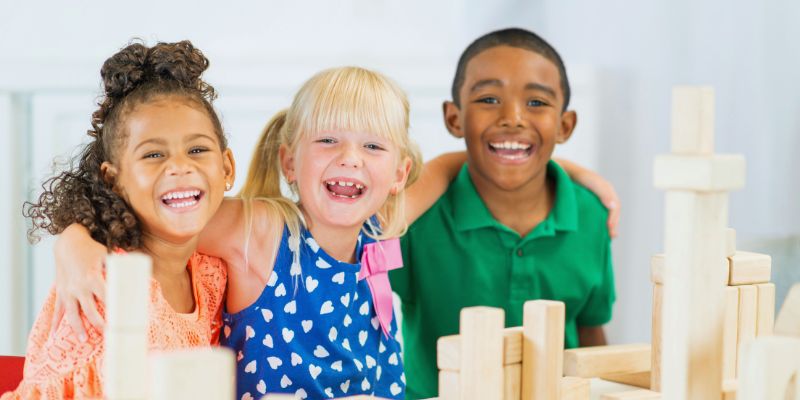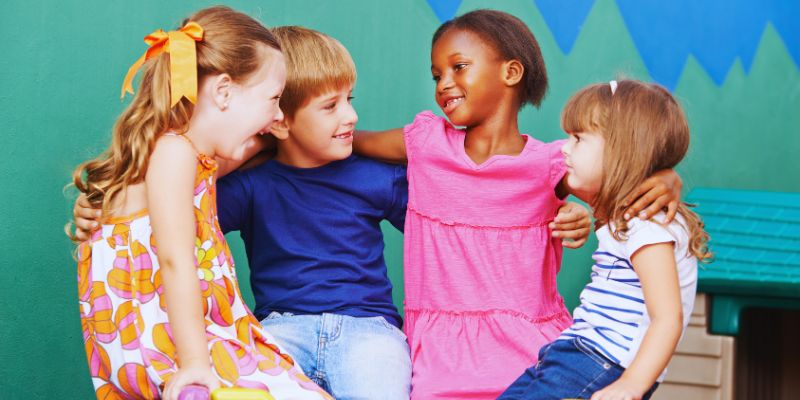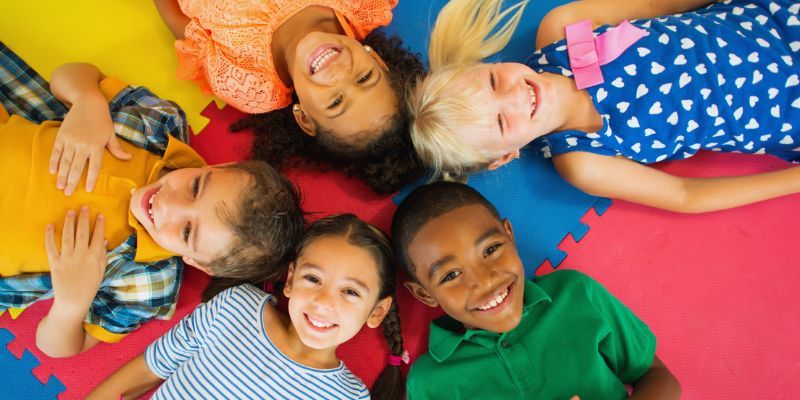Building friendships can be complicated for neurodiverse people. Social events could seem difficult to negotiate or overwhelming. Your child's development of these relationships depends much on you as their parent. Your child can establish essential relationships using direction and encouragement of understanding.
The following article offers practical tips to help neurodiverse kids develop friendships. These techniques can benefit from social skill instruction and setting encouraging surroundings. Every child is different; therefore, it is their path. Discover how to help neurodiverse youngsters grow confident and unique while making friends.

Understanding Your Child's Social Needs:
Every child from a neurodiverse background faces unique social problems and strengths. Some people find it challenging to use nonverbal signals or turn around in talks. Others might engage in organized events rather than free play. Knowing these particular needs is crucial to helping your child develop friendships. Start by seeing how your youngster interacts with other people.
See what kinds of activities they enjoy and what events cause them discomfort. Talk to your youngster about their emotions and pay attention to their worries. See therapists or teachers who can understand your child's social development. These experts can propose tailored plans for raising interaction abilities. When your child meets new pals, help them to communicate their choices.
Teaching Social Skills Step by Step:
Great friendships are built on social skills. Explicit education in several domains helps many neurodiverse children. The key is to teach these abilities in little, reasonable steps. Begin with simple questions or a greeting to someone. Play out situations at home to let your youngster hone. Simplify complex ideas using social stories or visual assistance. Guide your youngster toward self and other emotional awareness.
Get good at spotting body language or facial expressions in daily settings. This method requires much patience. Honor little accomplishments like greeting a classmate or lending a toy. Think about signing your youngster into social skills programs. These venues give chances for structured, encouraging interactions with peers. These teachings can help your youngster to approach friendships with confidence over time.
Creating Opportunities for Connection:
Establishing the right surroundings will enable your youngster to build close bonds. Search for events fit for your child's interests and aptitudes. Urge your child to sign up for classes centered on their interests, sports teams, or groups. Common interests give natural chances for socializing. Plan playdates with kids that share your temperamental range or enjoy the same hobbies.
Initially, keep these sessions brief and orderly. Show your contacts kindness, listening, and empathy to model good social behavior. Your child will learn a lot from watching you. Help your child approach people with basic gestures, such as a smile or inviting someone to play a game. Celebrate little steps toward significant relationships and put more value on quality than quantity.
Encouraging Hobbies and Interests:
Strong instruments for creating relationships are hobbies and interests. They establish a common area where kids may grow close. Help your child investigate athletics, art, or music—activities they enjoy. Group environments such as clubs or classrooms allow for natural social contact. Talk about their favorite subjects, and inspire your child. Passionate sharing can start discussions and draw like-minded friends.
Celebrate your child's passions. Unexpected friendships can result from even very specialized interests. For instance, a love of dinosaurs could lead one another child to be equally excited. Children who participate in activities they enjoy grow more confident. Better social contacts and chances for friendship building follow from this confidence.
Building Resilience and Self-Esteem:
Sometimes, the demands of friendship cause self-doubt or frustration. The social development of your child depends on the resilience taught to them. Help your child to realize that conflicts or rejection are inevitable aspects of life. To help children be ready for real-life events, role-play scenarios where things deviate from expectations. Emphasize your child's skills and honor their accomplishments—no matter how little.
Positive feedback increases self-esteem and drives one to keep on trying. Provide lessons in problem-solving techniques. If a friend causes a problem, help your youngster to resolve it. Encouragement of resilience will enable your youngster to remain hopeful about developing fresh friendships. Self-confidence increases their openness to forthcoming social events.

Fostering an Inclusive Mindset:
Encouraging your youngster to value diversity will help make friendships more significant—instruct children to celebrate and value differences. Tell them everyone has different challenges and strengths. Show this concept via texts or movies, including neurodiverse characters. Motivate your child toward empathy. Role-play helping a friend who feels excluded or offended.
Support their realization of the need to pay attention to others. Stress that friendships develop when people exhibit mutual respect and concern. Encourage honest talks regarding neurodiverse issues inside your family. Sharing your child's experiences could help them become more conscious of their social networks. Children who grow up knowing and appreciating differences are likelier to create real, lifetime relationships.
Overcoming Friendship Barriers:
Some neurodiverse kids deal with obstacles that complicate friendship formation. Finding and tackling these difficulties will help. Your child's interactions in social situations may be affected by sensory sensitivity. For playdates or group events, pick calmer, less exciting settings. Another often difficult obstacle is anxiety about meeting new people. Instruct your youngster on relaxation strategies to assist them in controlling these emotions.
Use assistance technologies, including communication boards or apps, if your youngster finds communicating difficult. These instruments improve their self-expression. Recall that little changes can have a significant effect. Your child can go beyond these obstacles and interact with people more naturally with the appropriate help.
Working with Schools and Communities:
Schools and community groups are aided in supporting friendship-building. Working with these organizations can build a helping system for your child. Talk to your child's teachers concerning their social issues and strengths. Work together on plans to support good classroom relationships. Support inclusive policies, including peer sensitivity training or buddy programs. These programs can enable youngsters to embrace better and understand neurodiversity.
Join seminars or parent support groups to exchange knowledge and pick fresh techniques. Interacting with other families can offer insightful analysis as well as emotional support. When communities cooperate to help neurodiverse youngsters form friendships, they flourish. Encouragement of awareness and teamwork helps to make the surroundings more inclusive for everybody.
Conclusion:
Helping neurodiverse kids create friendships requires understanding, tolerance, and proactive initiatives. Parents may assist their children in building significant relationships by teaching social skills, generating opportunities, and supporting inclusiveness. Working with communities and colleges guarantees more support for your child's path. Recall each little action advances things. Celebrate your child's special abilities and help them to welcome the beauty of difference. Neurodiverse youngsters can flourish socially and create friendships that enhance their lives with your direction.











